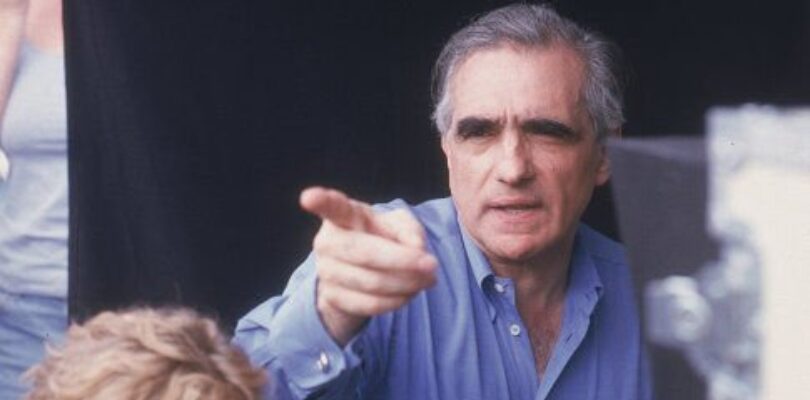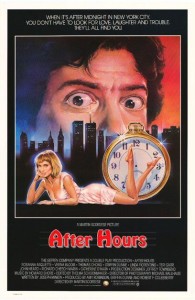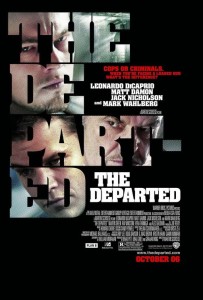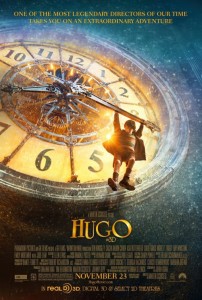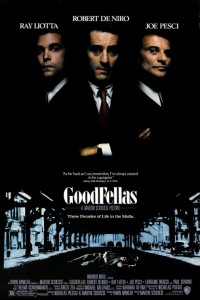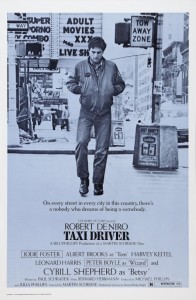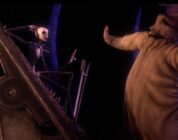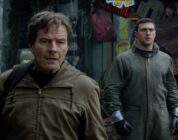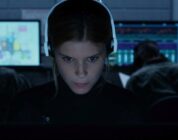Hollywood has always had a peculiar way of treating its artists. Usually after celebrating an initial spark of genius, the studios, media, or loyal fans often watch the once promising talent fizzle out with a bang, or more times, with a quiet whimper. Either way, it remains a difficult feat to stay relevant in Hollywood. Martin Scorsese is an example of the rare filmmaker who has been working for over forty years and continues to challenge himself while keeping audiences on their toes.
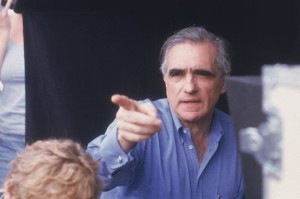
Martin Scorsese on the set of “Gangs of New York.”
Photo by Mario Tursi – © 2002
Miramax Films – All Rights Reserved.
Over the past ten years Scorsese has released five films, four of which have gone on to be big Oscar contenders (Gangs of New York, The Aviator, The Departed, and Hugo). This year marks the release of his latest Oscar hopeful, The Wolf of Wall Street. After Scorsese handed in a three-plus hour cut of the film, many thought we would not be seeing his fifth collaboration with Leonardo DiCaprio until early 2014. However, after some editing, it appears that the studio heads are happy with the current version and their position at the forefront of this year’s Oscar campaign.
It does seem slightly strange however, that anybody would be surprised at the length of any particular Scorsese film. The man can be incredibly long winded, both The Aviator and Gangs of New York clocked in at over three hours. Scorsese is also oftentimes criticized as creating films that glamorize violence and profanity (with the exception of Hugo). Regardless, of what one may feel about the man, he is an incredibly meticulous filmmaker who is constantly crafting important work, which begs to be discussed.
It remains to be seen where The Wolf of Wall Street will stack up against Scorsese’s other films. However, as long as the man continues to make masterpieces out of controversial, difficult, or even unpopular material, we may very well be seeing four-hour cuts of his films. Because, in Hollywood, if you have something interesting to say and an even more interesting way to say it, they tend to let you speak as long as you want to. Of course it helps if you’re both a critical and commercial success.
To reflect on his legendary career on the eve of the release of his latest film, I decided to toil through a thousand or so hours of Scorsese films (complete with countless tracking shots and freeze frames, of course) to compile this list of the auteur’s five best films.
[divider]
5. After Hours (1985)
This is Martin Scorsese doing his best David Lynch impersonation, which still seems completely original and fresh. Once we start following Paul Hackett (Griffin Dunne) down the rabbit hole there is no telling where we/he will end up. A monologue about Dorothy from Oz, horribly off color jokes about scar tissue among other things and an underground leather club are just some of the stumbling blocks our protagonist endures in one night off the beaten path in New York City. As familiar faces start entering the frame (Teri Garr, Katherine O’Hara, Will Patton) and the stakes get increasingly higher for our antihero, it remains a mystery why this surreal dark comedy never quite got the respect it deserved.
[divider]
4. The Departed (2006)
The entire cast is flawless. The film’s multiple narrative threads are carefully woven together to create a plot that keeps the viewer off balance in the best possible way. Scorsese uses a lot of his signature devices (voice-overs, long tracking shots, montages set to popular music) and themes (family, identity, guilt), but the way he communicates them through the film is both restrained and powerful. It is no secret The Departed uses both Goodfellas and Casino as narrative and stylistic templates, but it matters not to its ultimate success. This remains one of Scorsese’s most complete films. It’s a modern day American tragedy that is compulsively re-watchable earning it a rightful spot on this list.
[divider]
3. Hugo (2011)
Scorsese does a kid’s movie? Many people gawked at this bold choice for the filmmaker that prefers machine guns to mysterious clock towers. However, the heart of Hugo is pure Scorsese. It’s about the spell movies have over their audience and the profound effect cinema has had on history. Since most of Scorsese’s films are heavily influenced by the silent cinema era, why not create a love letter to the man who’s often credited with inventing many of the techniques the director employs? But Hugo is so much more than a tribute. The heart of the film is a family drama centered on a loveable orphan who wants nothing more than to be accepted for his many talents. The way Scorsese balances all these elements in a family film, no less, is pure movie magic.
[divider]
2. Goodfellas (1990)
Goodfellas is oftentimes regarded as one of the best mob movies of all time, and it is hard to disagree. The acting is explosive. The storytelling is impeccable. There is iconic scene after iconic scene. Films with heavy subject matter aren’t usually as darkly comic either. Goodfellas is an incredibly balanced film that should be discussed as an important piece of cinema for a variety of reasons, but one in particular. A three-minute long tracking shot on Henry (Ray Liotta) and Karen’s (Lorraine Bracco) first date. The two actors start on the street and descend into the nightclub through the kitchen. Hands are held and beautiful white tables are moved in order to accommodate the young lovers. Everything the viewer needs to know about what makes Henry’s exciting and dangerous world go round is presented in this spectacularly choreographed shot. Impressive is an understatement.
[divider]
1. Taxi Driver (1976)
There is something sinister and menacing creeping through every frame of the film. Robert De Niro plays Travis Bickle, an unstable Vietnam veteran who develops a dangerous crush. It’s not quite clear how the viewer is supposed to feel about Bickle. He plots the death of an elected official, but he also fights for the honor of a young prostitute. He is a man that survives in the grey areas and within the fringes of a society that is slowly driving him insane. As Bickle is surveying his newly procured weaponry there is nothing more than a ticking clock on the soundtrack. Scorsese is usually all for flash and excess, but the understated and powerful portrayal of Bickle’s descent into darkness is something to marvel at. Not only is Taxi Driver Scorsese’s best, it may be one of the most important American films of all time. It provokes thought and ultimately leaves us unsettled. As the credits roll we realize we have just spent two hours with a monster who looks eerily similar to the man in the mirror.

